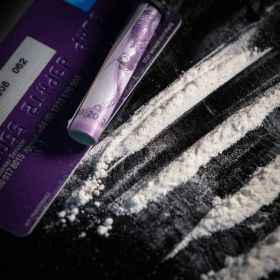Addiction: Definition, History, and More
What is Addiction?
Addiction is a chronic condition characterized by the compulsive use of a substance or engagement in a behavior despite harmful consequences. It often involves physical and psychological dependence, making it difficult for individuals to stop even when they recognize the negative impact on their health, relationships, or daily life. Addiction changes the brain’s reward and motivation systems, reinforcing the behavior and increasing cravings over time. While commonly associated with substances like alcohol, drugs, or nicotine, addiction can also involve behaviors such as gambling, shopping, or internet use. Treatment and support are essential for managing addiction and helping individuals regain control over their lives.
History of Addiction
The history of addiction spans centuries and reflects changing societal attitudes, medical understanding, and cultural practices. In ancient civilizations, substances like alcohol, opium, and cannabis were used for medicinal, religious, or recreational purposes, but awareness of their potential for abuse also existed. During the 19th century, the widespread availability of alcohol, laudanum, and opiates led to growing public health concerns, prompting the first organized temperance movements and early medical recognition of addiction as a health issue.
In the 20th century, addiction was increasingly studied as a psychological and neurological condition, leading to the development of formal treatment programs, rehabilitation centers, and support groups such as Alcoholics Anonymous. Laws regulating drugs and alcohol, such as Prohibition in the United States, reflected society’s attempt to control substance abuse, although often with mixed results. Today, addiction is widely recognized as a chronic brain disorder influenced by genetic, environmental, and social factors, and treatment approaches focus on a combination of therapy, medical support, and long-term recovery strategies.
Causes & Risks Factors of Addiction
Addiction is influenced by a combination of genetic, environmental, and psychological factors. Understanding the causes and risk factors can help identify who may be more vulnerable and guide prevention and treatment strategies. Causes and risk factors for addiction may include:
- Genetic Predisposition – Family history of addiction can increase susceptibility
- Mental Health Disorders – Conditions like anxiety, depression, or PTSD can contribute to substance use
- Environmental Factors – Exposure to drug use, peer pressure, or high-stress environments
- Early Use of Substances – Experimenting with drugs or alcohol at a young age increases risk
- Trauma and Stress – Emotional or physical trauma can lead to self-medicating behaviors
- Social and Cultural Influences – Societal norms, availability, and peer acceptance of substance use
- Personality Traits – Impulsivity, sensation-seeking, or difficulty coping with stress
Addiction in the Brain and Body
Addiction has profound effects on both the brain and the body, altering normal functioning and creating a cycle of dependence. In the brain, addictive substances and behaviors hijack the reward system by overstimulating the release of dopamine, the neurotransmitter responsible for pleasure and motivation. Over time, this leads to changes in brain regions that control decision-making, impulse control, and memory, making it harder for individuals to resist cravings or consider long-term consequences.
Physically, addiction can damage nearly every organ system depending on the substance used. Chronic alcohol use can harm the liver and heart, opioids can depress respiratory function, and stimulants can strain the cardiovascular system. Beyond direct physical effects, addiction often disrupts sleep, nutrition, and immune function, weakening overall health. Combined, these brain and body changes reinforce compulsive behavior, making professional treatment and ongoing recovery support essential for restoring balance and health.
Signs of Addiction
Addiction often develops gradually, making it difficult to recognize at first. Identifying the signs early can help individuals seek treatment before the condition worsens.
- Loss of Control – Inability to limit substance use or stop engaging in the addictive behavior
- Cravings and Preoccupation – Constantly thinking about the substance or activity
- Tolerance – Needing more of the substance to achieve the same effect
- Withdrawal Symptoms – Experiencing physical or emotional distress when not using
- Neglecting Responsibilities – Ignoring work, school, or family obligations
- Continued Use Despite Harm – Persisting with the behavior even when it causes physical, mental, or social problems
- Isolation – Withdrawing from friends and family to use or engage in the addictive behavior
- Mood Swings and Behavioral Changes – Increased irritability, anxiety, or depression related to use
Types of Addiction
Addiction can take many forms, broadly categorized into substance and behavioral addictions. Substance addictions involve the compulsive use of drugs or alcohol, while behavioral addictions involve repeated engagement in activities that provide pleasure or relief but cause harm over time. Understanding the different types helps guide appropriate treatment approaches.
- Alcohol Addiction – Chronic dependence on alcohol, leading to physical and psychological harm
- Drug Addiction – Dependence on prescription medications, opioids, stimulants, or illicit substances
- Nicotine Addiction – Compulsive use of tobacco or vaping products
- Gambling Addiction – Persistent urge to gamble despite financial or personal consequences
- Food Addiction – Compulsive overeating or obsession with certain foods
- Internet and Gaming Addiction – Excessive use of digital devices, social media, or online games interfering with daily life
- Sex and Pornography Addiction – Compulsive sexual behaviors that negatively affect relationships and responsibilities
- Shopping or Spending Addiction – Compulsive buying that causes financial strain and emotional distress
Why Addiction is Hard to Treat
Addiction is hard to treat because it affects both the brain and behavior, creating a powerful cycle that is difficult to break. The changes in brain chemistry caused by prolonged substance use or compulsive behaviors can lead to intense cravings, impaired decision-making, and reduced impulse control. Physical dependence can result in withdrawal symptoms that make stopping uncomfortable or even dangerous without medical supervision.
Behavioral and environmental factors also contribute to the challenge. Stress, triggers, social pressures, and co-occurring mental health conditions can all increase the risk of relapse. Additionally, addiction is often accompanied by denial or minimization of the problem, making individuals less likely to seek or fully engage in treatment. Effective recovery usually requires a combination of medical care, therapy, lifestyle changes, and ongoing support, emphasizing that addiction is a chronic condition that needs long-term management rather than a quick fix.
Social Impacts of Addiction
Addiction affects more than just the individual struggling with substance use or compulsive behaviors; it can have profound social consequences. Relationships with family, friends, and coworkers often suffer as trust is broken, communication declines, and conflicts arise. Financial problems are common due to spending on substances, job loss, or legal issues, which can further strain personal and professional connections.
Social isolation is another common outcome, as individuals may withdraw from supportive networks or engage only with peers who enable their addiction. Communities are also impacted through increased crime, healthcare costs, and social services demands. Overall, addiction disrupts social stability and connection, highlighting the importance of treatment not only for personal recovery but also for restoring relationships and rebuilding social functioning.
Can Addiction Be Caused After Using Just Once?
While it is uncommon, addiction can sometimes develop after a single use, depending on the substance, the individual’s biology, and psychological factors. Highly addictive drugs, such as certain opioids or potent stimulants, can trigger strong changes in brain chemistry even after one exposure, creating intense cravings or reinforcing compulsive use.
However, for most people, addiction develops gradually through repeated use, which strengthens the brain’s reward pathways and increases tolerance and dependence over time. Genetics, mental health conditions, trauma, and environmental influences also play a significant role in determining susceptibility. While a single use rarely leads directly to full-blown addiction, it can act as a gateway for individuals who are already at higher risk.
What are the Most Addictive Addictions?
The most addictive substances or behaviors are those that create strong physical and psychological dependence, often altering brain chemistry rapidly and producing intense cravings. These addictions tend to be harder to quit and have a high risk of relapse.
- Nicotine – Extremely addictive due to its fast effect on the brain’s reward system
- Heroin and Other Opioids – Cause rapid physical dependence and severe withdrawal symptoms
- Cocaine – Stimulates intense euphoria and strongly reinforces repeated use
- Methamphetamine – Highly addictive stimulant with long-lasting brain effects
- Alcohol – Widespread availability combined with both physical and psychological dependence
- Benzodiazepines – Prescription sedatives that can create tolerance and withdrawal issues quickly
- Crack Cocaine – A more potent form of cocaine that causes immediate, intense highs and rapid dependence
Behavioral addictions, such as gambling or compulsive sexual activity, can also be highly addictive, especially when they strongly activate the brain’s reward pathways. The intensity of addiction depends on individual factors like genetics, mental health, and environment, making some people more vulnerable than others.
Integrated Addiction Treatment in LA
Addiction and substance abuse can be difficult to recognize and diagnose. Since both substances are legal or widely accessible, their use is often seen as normal behavior, making it easier for issues to go unnoticed for longer than they should. However, abusing drugs or alcohol can have serious consequences, both physically and mentally. At Harmony Place in Los Angeles, CA, our addiction treatment center can help you overcome dependencies, guiding you toward lasting recovery.
Drug addiction and alcohol dependence can both lead to strained relationships, financial difficulties, personal insecurity, and serious health problems. Without the right help, you may feel as though you are spiraling out of control, which can push you to use substances even more. That’s why it’s crucial to explore your options for addiction treatment programs, so you can break the cycle and regain control of your life.

The Importance of a Dual-Diagnosis Approach for Mental Health and Addiction Treatment in Los Angeles
Treating addiction and mental health conditions concurrently is considered dual diagnosis care. Many recent studies conclude that an integrated approach is much more effective in reaching long-term sobriety and behavior modifications than treatment that deals with addiction alone. Nearly half the people with substance addiction will also have some form of mental health disorder. By employing dual diagnosis addiction treatment, Harmony Place ensures that the patient’s substance use disorders and mental health are addressed. Patients receive an individualized treatment plan for their specific addiction.
We support the literature findings that state at least 90 days of treatment through all phases of care (residential, outpatient, transitional living). This is due to reports and reputable organizations recommending as much. A 2007 Time magazine report concluded, “90 days is just about how long it takes for the typical addicted brain to reset itself and shake off the immediate influence of a drug.” Whether your addiction treatment program is an outpatient rehab, intensive outpatient program, inpatient residential treatment, transitional living, or one of the partial hospitalization programs, Harmony Place’s solution-focused therapy is focused on actionable solutions and positive psychology to treat addiction.
Furthermore, the Substance Abuse and Mental Health Services Administration and the National Institute on Drug Abuse recently continue to endorse, “Research has shown unequivocally that good outcomes are contingent on adequate treatment length. Generally, for residential or outpatient treatment, participation for less than 90 days is of limited effectiveness.” Because the treatment programs for drug and alcohol addiction last for an extended period, this allows Harmony Place to apply clinical services like dual diagnosis care for the chronic disease of alcohol and drug addiction and mental health issues.
Call Us 24/7 for Immediate Care
We are an in-network provider with Anthem, First Health Network, Multi-Plan, Beacon, HMC, Humana, Aetna
Does Addiction Treatment Work? Recovery Rates & More
National Institute on Drug Abuse in 2020 found that 3 out of 4 people who experience addiction eventually recover. With Harmony Place’s unique combination of therapies and individualized treatment plans, recovery rates and success look different for everyone. However, Harmony Place’s addiction treatment in Los Angeles endeavors to exceed these expectations. The NIDA notes: “individual treatment outcomes depend on the extent and nature of the patient’s problems, the appropriateness of treatment and related services used to address those problems, and the quality of interaction between the patient and his or her treatment providers.” Since there is no universal metric for measuring recovery success, a drug rehab center may count factors such as program completion, sobriety rates, internal studies, and client interviews. For an individual who is entering drug rehab or a rehab center for treatment, whether inpatient, outpatient, or partial hospitalization, recovery and success depend on the individual and their support and team.
By scrolling below, you can learn more about our approach to addiction treatment programs in Los Angeles and the many modalities we offer at Harmony Place rehab center.
-
Medication-Assisted Treatment
Learn how medication-assisted treatment helps clients with extreme issues, such as opioid or heroin addiction, and get relief from withdrawal symptoms while detoxing.
In most medication-assisted treatment centers, one medication is substituted for another drug or is the only form of therapy. However, at Harmony Place’s addiction treatment in Los Angeles, this is only one piece of the treatment program, used in conjunction with other forms of clinical, evidence-based, and holistic therapy. Suppose a client is prescribed a specific medication for their addiction treatment. In that case, our physicians choose to do so thoughtfully and as needed, with the intention to taper the patient off the medication when it is safe to do so. Prescribing medication is done specifically to treat more severe withdrawal symptoms, not replace the client’s original drug or alcohol addiction. It is always done at an addiction treatment center.
Detox is only one part of the recovery process, and withdrawal symptoms can be unpredictable. At Harmony Place, you can feel confident that the medical professionals will keep you safe during the harshest of symptoms.
-
Clinical Care
Clinical care at our Los Angeles addiction treatment center is custom-designed with evidence-based therapy combined with holistic modalities to treat different substance use disorders, whether through an intensive outpatient program, inpatient drug rehab center, residential treatment, or outpatient services. Harmony Place is specially licensed to conduct specific programs, detoxifications, talk therapy, and support groups to assist those seeking addiction treatment to live healthier, sober lives.
Because of our special licenses and our high quality of care for our patients who are seeking a nationally-accredited treatment provider, Harmony Place has the unique distinction of meeting a standard of care that only 5 percent of licensed adult residential treatment facilities in California have met.
-
Treatment Modalities
Because Harmony Place rehab center in Los Angeles provides a safe and structured environment, our treatment programs are based on personal responsibility, individual dignity, and self-esteem to explore the obstacles to recovery and the underlying issues that contribute to or exacerbate addiction.
At our addiction treatment center, clients receive individual therapy sessions to explore sensitive topics, set goals, and manage treatment from the client’s admission to the treatment center to completion of the program.
-
Relapse Prevention
A drug abuse problem, such as cocaine addiction, heroin addiction, or even prescription medication addiction; alcohol abuse problem; or substance use disorder can cause dysfunction in the central nervous system. This dysfunction, coupled with the stress of coping without drugs or alcohol, are added factors that could lead a person down the road to relapse. However, with the comprehensive care and relapse-resistance building the individual and their team work on during their stay in our treatment center, alongside the dual diagnosis care they receive as part of their treatment program, relief from these stressors and pain and long-term recovery is possible.
-
Group Therapy
Group therapy often helps an individual in a different way from individual therapy. By recognizing shared experiences, clients in the addiction treatment center may feel more positive and validated by sharing their own experiences, mitigating any anxiety symptoms they might have had about entering a treatment program. Group therapy also allows individuals to develop social skills and adaptive behaviors by observing and modeling others in the treatment center and support group.
-
Family Therapy & Program
Family therapy also has an essential impact on the success of many programs. By providing psychoeducation for family members, Harmony Place supplies them with insight into addiction and the behaviors family members may have exhibited by their loved ones. Harmony Place delivers education for the family, and our rehab facility also provides family therapy to rebuild trust within the family unit.
Our Specialty Addiction Treatment Options
Levels of Care for Addiction Treatment Rehab
At Harmony Place, we guide you through every level of care for addiction treatment rehab—starting with medically monitored residential inpatient and gradually transitioning to PHP, IOP, outpatient care, transitional living, and alumni support—so you receive the precise clinical intensity you need while building the skills and confidence essential for lasting recovery in our treatment programs.
Residential Inpatient
Residential Treatment: Residential treatment can assist those who suffer from the following challenges: trauma, eating disorders, substance abuse, cognitive development, problems related to personality, and addictive and compulsive behaviors. As a residential treatment provider, Harmony Place allows individuals to experience around-the-clock care while facing the challenges of addiction and mental health.
Partial Hospitalization
Partial Hospitalization Program (PHP): The Partial Hospitalization Program is an outpatient rehab program that provides therapy and treatment during the day and free time at night. PHP is similar to an intensive outpatient rehab program yet offers more time for patients to attend on-site programs, like group therapy.
Intensive Outpatient
Intensive Outpatient Program (IOP): An intensive outpatient program allows patients to go through rehab and move on to immerse themselves in a healthy environment to take on their addictions and behaviors.
Outpatient Treatment
Outpatient Treatment: Just down the street from our residential property, our Los Angeles outpatient rehab treatment facility is home to the same quality of personalized care offered in our residential program. The outpatient rehab stage is ideal for living outside of a residential rehab environment while still receiving helpful therapy and education that helps keep relapse at bay.
Transitional Living
Transitional Living: Once inpatient treatment has been completed, transitional living provides a structured place to maintain a sober life, while still transitioning into their everyday lives. Our transitional living program in Los Angeles, California, allows individuals to live in a sober environment overseen by addiction recovery professionals, which provides a source of accountability while allowing individuals to focus on one aspect of sober living at once.
Aftercare and Alumni
Aftercare and Alumni Programs: Alumni and graduates of our drug rehab and alcohol addiction treatment programs are invited and encouraged to remain engaged with Harmony Place through the Alumni Program. A licensed therapist leads this program, but Alumni Mentors become leaders in alumni meetings, online support groups, and social events.
Request a 100% Confidential Callback
Clinical Programs & Addiction Treatment Therapies in Los Angeles, CA
Your personalized treatment at our Los Angeles addiction treatment center may include:
- Dialectical Behavior Therapy (DBT): DBT focuses on mindfulness, living in the moment, coping with stress, regulating emotions, and improving relationships with others. Originally developed as a therapy for mental health issues, DBT has been found effective in addiction medicine.
- Cognitive Behavioral Therapy (CBT): CBT is a form of talk therapy that focuses on your thoughts, beliefs, emotions, and feelings. It is an excellent tool for discovering negative emotions and ideas and ways to uproot them. While the therapists may ask direct questions that might make individuals uncomfortable, it is done within a safe space to help work through the underlying causes of addiction.
- Motivational Enhancement Therapy (MET): MET is a rapid form of counseling to help clients resolve any mixed feelings about their addiction treatment or entering into an addiction treatment center, whether on an outpatient basis or in a residential treatment program.
- Relapse Prevention Education: This type of education provides techniques, such as SMART recovery techniques, to maintain both short-term goals and long-term sobriety
- Nutritional Therapy: Maintaining a healthy body with proper nutrition is also part of a sober lifestyle.
- Mindfulness: This is the process of being aware of your thoughts and feelings. Mindfulness is living in the moment, and mindfulness groups are a type of therapy that can help individuals look objectively at their behaviors to identify the underlying thoughts that inspire them. Over time, people learn that when they change their thoughts, they can change their behaviors and thereby change their lives, living more emotionally healthy lives.
- Art Therapy: Art Therapy can take many forms, such as painting, Drawing, Knitting, Sculpting, Poetry, Playing or listening to music, Journaling, Dancing, Coloring, or Scrapbooking. These types of therapies can help many people avoid their addiction triggers.
Clinical Care & Activities
-
12-Step Facilitation
-
Licensed Counselors and Therapists
-
Licensed Vocational Nurses 24/7
-
Physicians Specializing in Addictions
-
Addiction Psychiatrist
-
Gourmet Chef, fluent in nutritional recovery
-
Yoga, Reiki, and Meditation
-
Gym Time and Fitness Training
-
Weekly Outings
-
Beach Walks
“If you want something to change, you have to do something different.”
-
Absolutely the best recovery center around.
I am forever grateful to have had this experience. I would recommend anyone who wanted help to come here. This place literally saved my life. I have overcome so many obstacles that always stood in the way of my recovery. It’s not just because I was ready… the approaches the therapists use come from an empathetic, compassionate, and understanding place. They were able to hold the mirror up and help guide me through making solid changes.
Daniel H.
August 2017 -
This place literally saved my life.
After overdosing, my parents forced me to check into rehab.After interviewing many other facilities, I decided to go to Harmony Place from my home in Phoenix. I was struggling with…a drug addiction and had been trying for years to recover. In the past, left 2 treatment centers AMA and 1 AWOL. I had very negative experiences in the other treatment facilities, especially with my therapists, so I didn’t go in with an open mind or good attitude- even though they worked with my parents regarding finances. However, the staff was patient with me. The techs were kind, knowledgeable, and many were in recovery themselves.
Mary M. -
They Answered on the First Call
When I called Harmony Place…I knew immediately that this was the right place for my child… Harmony Place is specifically designed for…and tailored to providing a safe environment. The staff [are knowledgeable and some are in recovery]. The staff knew each client and were on top of each client’s progress. Harmony Place has a small clientele and each client are able to receive all the help they were entitled to. I would recommend Harmony Place to anyone who is looking for a small setting… My daughter is currently going into sober living and her counselors did a wonderful job in finding a right fit for her – affordable, safe and a good environment for her.
Robyn
Loved-One -
I’ve Been Searching for the Perfect Words…
I left Harmony Place in August of 2015 and I have been searching for the perfect words to describe my experience during my stay; and still I can’t really find them. How do you really describe a place with a staff and a program that saved you? Addiction is a terrible thing to go through and a heart breaking thing for your loved ones to watch. Many people, including myself go into different treatment centers throughout their addiction searching for ways to find recovery. Nothing worked for me, not the 5 rehab stays I had, then, I came here.
Dominique C.
Alumni
We Are More Than Another Addiction Treatment Center in Los Angeles. We Are Harmony Place.
Here in West Los Angeles, CA, Harmony Place treats addiction from a “whole person” perspective. We, your dedicated team of professional addiction treatment specialists, look at a person’s alcohol addiction or drug use, alongside their co-occurring mental disorder, emotional, physical, and spiritual health to create the best treatment and rehab options for the individual.
Harmony Place believes wholeheartedly in the right to self-determination. We meet weekly as a treatment team and offer advice as to the length of stay for our clients. Each client determines their own commitment to recovery and healthy life. We are dedicated to delivering the best-integrated treatment possible for every client at Harmony Place.
We believe in compassion as a channel to respect and dignity rarely experienced by our clients due to their co-occurring mental health and substance use disorders. With this philosophy in mind, we endeavor to become your preferred health care provider to supply you and your loved ones with the absolute best care in our Los Angeles, California, addiction treatment center.






































